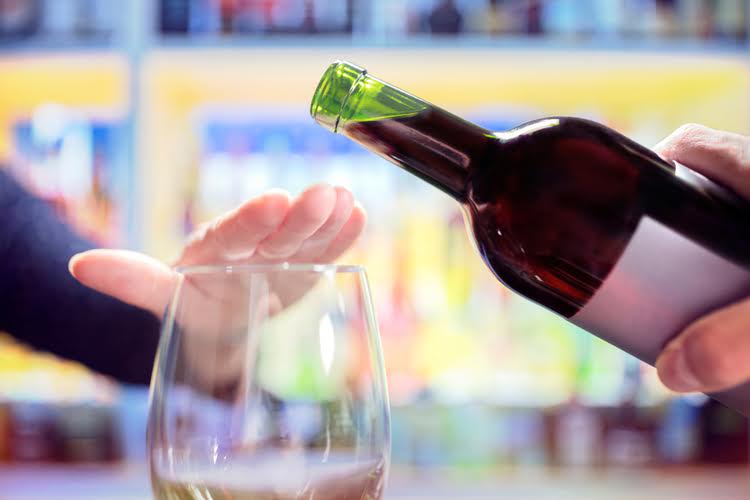The 12-step program is to help people overcome their addictions and compulsive behaviours by using a structured way to build inner spiritual strength. Step 12 tells us to apply the principles of recovery to all of our lives and share them with others still suffering. By telling our own story of recovery, we create an environment that supports us in staying sober.
Examples of alcohol treatment programs
Remaining vigilant and engaged in long-term recovery efforts increases the likelihood of sustained success and a higher quality of life. Mindfulness practices such as meditation, yoga, or deep breathing exercises are also highly beneficial in recovery. These practices help individuals remain present, manage stress, and develop better emotional regulation skills.
LifeRing
Insight is a powerful tool for change because it makes it easier to be mindful of decisions you’re making in the moment. You’ll meet millions of fellow Reframers in our 24/7 Forum chat and daily Zoom check-in meetings. Receive encouragement from people worldwide who know exactly what you’re going through! You’ll also have the opportunity to connect with our licensed Reframe coaches for more personalized guidance. Our public relations policy is based on attraction rather than promotion; we need always maintain personal anonymity at the level of press, radio, and films.
Stage 5: Developing Healthy Habits

Inpatient rehab offers a structured and supportive setting, free from the triggers and temptations of daily life. It allows individuals to detoxify safely, receive intensive therapy, and learn coping mechanisms for managing cravings and triggers. The aftercare program Peter received, which what is alcoholism included a recommendation for sober living, further underscores the importance of continued support in early recovery. Factors influencing recovery duration include the severity of addiction, mental health conditions, social support, and engagement in therapy or peer support groups.
Having a proactive plan ensures you are well-equipped to manage triggers or cravings without relapsing, strengthening your resolve over time. A path that winds through courage, self-discovery, healing, and transformation. Renew Health clients often find digital recovery groups a lifeline—especially in rural areas or during times of high stress. Trying to quit alcohol alone—especially if you’ve developed physical dependence—can be dangerous. Withdrawal steps to recover from alcoholism symptoms can range from tremors and anxiety to seizures and hallucinations. Consider journaling, talking to a trusted friend, or joining an online forum.
Through sharing your own experiences, you’ll discover that helping others strengthens your own recovery. This reciprocal support system creates a sustainable foundation for long-term sobriety. We specialize in compassionate, evidence-based care tailored to your needs. Whether you’re seeking help for yourself or a loved one, we’re here to guide you every step of the way. Ultimately, the goal is to empower individuals with the tools and support needed to navigate the complexities of life without reliance on alcohol, thus securing a sustainable, sober lifestyle. Rebuilding life also involves practical aspects such as managing finances, which may have been affected by the period of addiction.
- Our addiction therapy services include treatment for those with a dual diagnosis of addiction and another mental illness.
- For over 20 years Dr. Umhau was a senior clinical investigator at the National Institute on Alcohol Abuse and Alcoholism of the National Institutes of Health (NIH).
- It allows individuals to acknowledge their progress and achievements, and serves as a reminder of how far they have come.
- However, friends and loved ones can play an important role in helping guide reflection at this time, going through pros and cons of drinking and aiding acceptance that a problem exists.
- These groups rely on peer support to minimize relapse and maintain abstinence.
The camaraderie and collective wisdom found in support groups are invaluable resources for those navigating the complex path of alcohol recovery. Lastly, incorporating culturally competent practices and addressing unique aspects of individuals’ lives, such as sexuality or cultural background, is essential for the success of treatment programs. This approach ensures therapies are more relevant and effective, tailored to each individual’s needs. Following detox, recovery management programs can provide valuable ongoing support. These programs may include professional coaching and assistance in navigating sobriety in the real world, aiding in the establishment of a solid foundation for wellness and recovery.

Stage 3: Structured Rehabilitation and Therapy
Check for discoloration, mold, strange smells, or odd texture to avoid health risks. Recovery from alcoholism is not something you can achieve half heartedly, or on your own. The steps may seem simple in themselves but we don’t underestimate the courage and commitment it takes to make each one. Part of working the 12 Steps is taking a moral inventory, which involves looking deeply and honestly at oneself and becoming willing to let go of anything interfering with one’s growth.
- The original 12 steps have evolved to meet the changing science and psychology of addiction recovery, even though the premise remains unchanged.
- Alcoholics Anonymous (AA) has been going for over 80 years and their 12-step program has become synonymous with addiction recovery the world over.
- Recovery.com combines independent research with expert guidance on addiction and mental health treatment.
Embracing a sober lifestyle involves making conscious choices to abstain from alcohol and adopting healthy habits https://leadershippointradio.com/alcohol-abuse-vs-alcohol-dependence/ that support recovery. It’s important to develop new routines and activities that promote physical and emotional well-being. Having a network of supportive family members, friends, and peers who understand and respect the journey can provide invaluable encouragement and assistance. A support system can help individuals stay accountable, provide guidance during difficult times, and celebrate milestones and achievements.
Many 12-step programs suggest that sobriety means total abstinence, which means never using the substance again. Other definitions, however, focus on the process of recovery and coping habits that support health and wellness over the long term. There are various types of support groups available for individuals in alcohol recovery. Alcoholics Anonymous (AA) is one of the most well-known and widely available support groups for individuals seeking sobriety. AA follows a 12-step program and offers meetings where individuals can share their experiences and receive support from others in recovery. Support groups play a crucial role in alcohol recovery by providing individuals with a sense of community, understanding, and accountability.
Our facility is located on a serene riverbank just outside the beautiful city of Chiang Mai, Thailand. An hour’s flight away from the capital city of Bangkok, The Dawn offers a resort-like setting in a calm, soothing atmosphere a world away from the triggers of home. He rebuilt trust with his wife, got a promotion, and began mentoring others in early recovery. John C. Umhau, MD, MPH, CPE is board-certified in addiction medicine and preventative medicine. For over 20 years Dr. Umhau was a senior clinical investigator at the National Institute on Alcohol Abuse and Alcoholism of the National Institutes of Health (NIH). Combining therapy with support groups can greatly improve your odds of success.
People in recovery can experience a lot of shame simply for having become addicted in the first place. Hosted by therapist Amy Morin, LCSW, this episode of The Verywell Mind Podcast shares how to avoid repeating mistakes and build better habits. Depending on the type of dependency, PAWS can last from six months to two years after you stop using drugs or alcohol. So while the liver starts recovering quickly, truly healing from substantial alcohol-related injury and disease realistically takes a year or more. Recovering alcoholics enter the maintenance stage, which can last anywhere from six months to years. Relapse is a common experience, so if you fall off the wagon, don’t beat yourself up.
